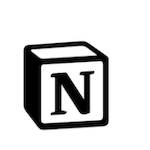If you’re anything like me, you start each new year with a fresh moleskin journal or weekly planner — resolved to get more productive, organized, creative — only to abandon its use after a few short months.
That’s why note-taking apps are handy. They go with you, you can typically use them on a bunch of different devices, and they offer helpful tools and flexibility to suit a variety of use cases. Plus, they aren’t embossed with the calendar year.
There’s a lot of note-taking apps out there, though, and no two are exactly alike. Some are perfect for archiving resources and storing knowledge, others are better for managing projects, and still more are good at providing a quick and easy way to write something down.
Note-Taking Apps to Know
- Apple Notes
- Bear
- Evernote
- GitBook
- Notion
- Obsidian
- OneNote
- Roam Research
- TiddlyWiki
- Ulysses
- WorkFlowy
Whether you want to keep a digital diary, make a to-do list, build a personal wiki or establish documentation for your team, here are 11 options you should know about.
 Evernote
Evernote
Evernote has been a mainstay in the note-taking space for over a decade. More than 200 million people use it to take notes, track tasks and organize projects. The app is compatible with several platforms and can be synced across multiple devices. Its paid plan offers additional features, including the ability to clip articles from the web, attach different file types, and integrate it with tools like Google Drive, Salesforce and Outlook.
Price: Free (premium subscription is $7.99 monthly; business subscription is $14.99 monthly per user)
 OneNote
OneNote
Microsoft’s OneNote bills itself as a digital notebook. It looks like a classic binder, replete with tabs and dividers. The pages act sort of like paper too — you can create an element, like a text box, on any part of the page, and move it around. OneNote lets you do many things, like take notes, create checklists and attach documents. It’s also free to use, with no additional features to unlock. It can be accessed from just about any platform or device.
Price: Free
 Notion
Notion
Notion is a versatile tool. It lets you take notes, create databases and spreadsheets, and set up boards and tickets for project management. (It also comes with editable templates if you’re overwhelmed by the blank page.) Notion works by creating “blocks” of basic elements within pages, which offers flexibility, but can make the app a bit cumbersome if all you want to do is jot a quick note. Notion can be accessed via browser or app, and is supported by both iOS and Android operating systems.
Price: Free (premium subscription is $4 monthly; team subscription is $8 monthly per user)
 Roam Research
Roam Research
Roam Research is a unique alternative to traditional note-taking systems. It lets you link notes to one another through an on-page tagging system, creating a web of connections between them. And it offers a graph overview, so you can see all the note-to-note links you’ve made, rather than navigating a typical, hierarchical folder system. Roam encourages daily note-taking on its low-friction writing interface too. The tool is said to come with an initial learning curve. Currently, it can only be accessed through a browser.
Price: $15 monthly or $165 yearly
 Apple Notes
Apple Notes
This note-taking app is a favorite among Apple users: It’s already built into iOS and macOS, syncs across Apple devices via iCloud and integrates with Siri for hands-free note taking. The app is missing some commonly found bells and whistles (like markdown support) but lets you format text with titles, bullets, bold and italics, and organize notes by nesting subfolders within folders. For what it’s worth, Apple Notes has also become the go-to option for celebrities sharing public apologies.
Price: Free
 Bear
Bear
Bear is an app used for research, writing and note-taking. It’s known for its streamlined experience and minimalist design (additional themes can be unlocked with a paid plan). The app relies on nested tags for organization. It uses a markdown editor for formatting, and it supports code blocks and syntax highlighting for over 150 programming languages. Android and Windows users beware: This app only works in the Apple ecosystem.
Price: Free (premium subscription is $1.49 monthly or $14.99 annually)
 Obsidian
Obsidian
Obsidian is a note-taking tool that lets you build a personal knowledge base using plain-text markdown files. Similarly to Roam Research, you can use Obsidian to link notes to each other, building a web of associated ideas over time. Obsidian is available for Windows, macOS, and Linux (so no mobile app) and saves your data to a local folder instead of cloud storage. It comes with a toolbox of optional plugins too.
Price: Free (commercial subscription is $50 monthly; add-on services are available for additional fees)
 Ulysses
Ulysses
Ulysses is a digital workspace for writing prose and organizing your notes. Many of its features are geared toward longer forms of writing. For example, you can set daily writing goals or deadlines, and track your progress. It lets you tag keywords as well. Ulysses also gives you the ability to publish your drafts directly to WordPress or Medium from inside the app. Like Apple Notes and Bear, Ulysses is only supported by Apple devices.
Price: $5.99 monthly or $49.99 yearly
 WorkFlowy
WorkFlowy
WorkFlowy is a digital document where you create and organize an infinitely nesting list of notes and tasks. That makes it simple to use and especially useful for ticking off to-dos and writing down ideas in a bulleted fashion. However, it also limits the organization to a hierarchical, outlined structure. You can use WorkFlowy in your browser, and it’s compatible with Mac, Windows, Linux, iOS, and Android.
Price: Free (premium subscription is $5 monthly)
 GitBook
GitBook
GitBook started in 2014 as an open-source tool for creating and storing documentation. The cloud-based app comes with a WYSIWYG editor and markdown, designed to keep friction low and productivity high, whether you’re creating a personal knowledge base or collaborating with a team asynchronously. GitBook’s paid plan allots more storage space — plus additional features, such as search tools, usage analytics and custom domains.
Price: Free (team subscription is $8 monthly per user; business subscription is $15 monthly per user)
 TiddlyWiki
TiddlyWiki
TiddlyWiki is like your own personal Wikipedia, a digital knowledge base where you can keep a journal, manage to-do lists and organize documentation. It’s a large HTML file that you save locally and can access from any web browser. To allow for further customization, TiddlyWiki offers a library of plugins, created by users.
Price: Free




